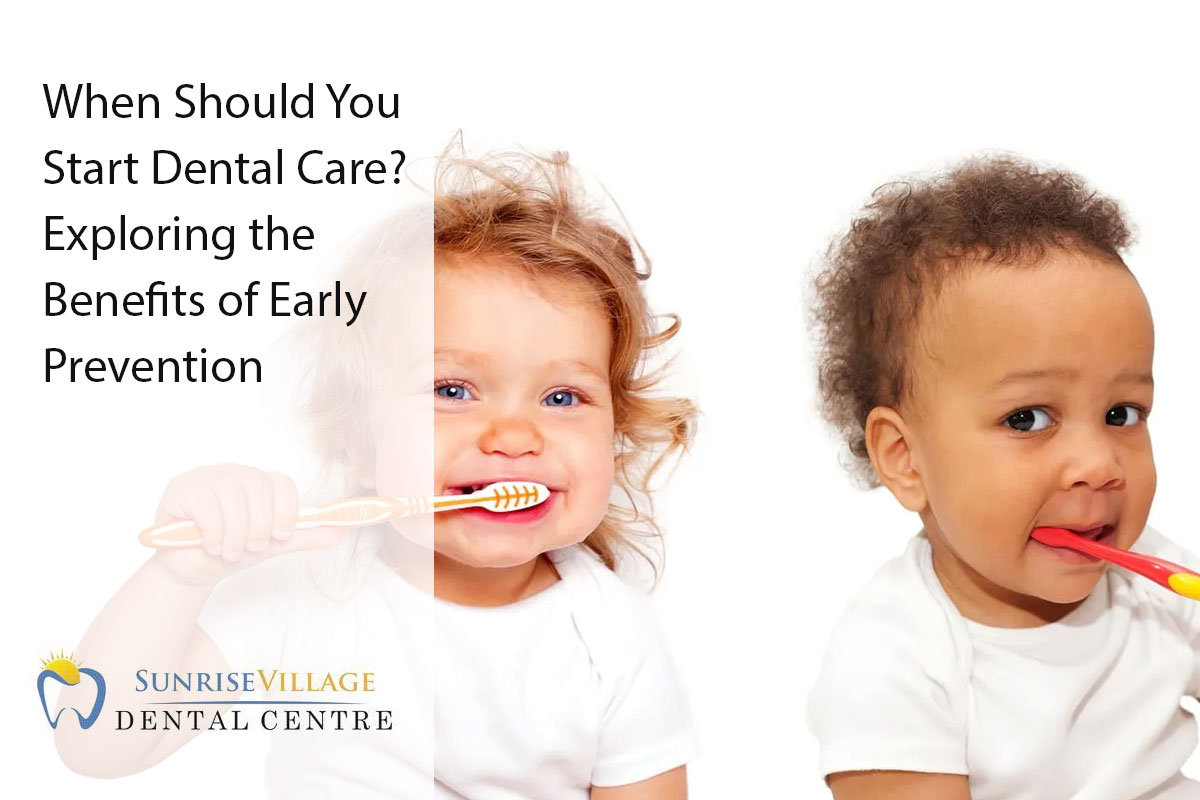
Curious about the ideal time to begin your child’s dental care? You’ve found the right article, as we delve into the advantages of early dental health prevention and highlight its importance for your child’s overall well-being from an early age.
Importance of Early Prevention in Dental Care
Early dental care is vital for teaching children good oral hygiene habits, preventing common dental issues like tooth decay and cavities. Decay and cavities can occur in children as soon as their first teeth erupt. Regular dental check-ups and cleanings can catch these issues early on and prevent them from progressing. Early dental care also reduces the risk of costly and invasive treatments in the future while promoting overall health by mitigating systemic diseases linked to poor oral health. This sets children on the path to a lifetime of healthy smiles.
Common Dental Problems That Can Be Avoided
Common dental problems that can often be avoided or minimized with early dental care include:
- Tooth Decay: Early prevention can teach children proper brushing and flossing techniques and promote a healthy diet low in sugary foods and drinks, reducing the risk of tooth decay and cavities.
- Gum Disease: Early oral hygiene habits can help reduce the risk of gum disease, characterized by inflamed and infected gums, which can lead to symptoms like bleeding gums, bad breath, and eventual tooth loss.
- Orthodontic Issues: Regular dental check-ups from an early age can allow dentists to monitor the growth and development of a child’s teeth and jaw. Any orthodontic issues detected can be addressed early on, often with less invasive and shorter treatments.
By emphasizing early dental care and promoting good oral hygiene practices, many common dental problems can be prevented or mitigated, ensuring better oral health throughout life.
When Should Dental Care Start?
Start taking care of your child’s oral health when their first tooth appears, usually around six months. Prior to this, clean their gums gently with a soft, damp cloth after feedings to form good oral hygiene habits. As more teeth emerge, introduce a soft toothbrush and a small amount of fluoride toothpaste for brushing twice daily, gradually using more toothpaste.
Tips for Establishing Good Dental Care Habits in Children
Promoting kids’ long-term oral health relies on forming good dental care habits. Here are some easy steps:
- Lead by example: Demonstrate proper brushing and flossing techniques.
- Make it fun: Use fun toothbrushes and play their favourite songs during brushing.
- Set a routine: Establish a daily brushing and flossing schedule.
- Use positive reinforcement: Praise their efforts to encourage good oral hygiene.
- Limit sugary items: Reduce sugary foods and drinks and encourage fruits and vegetables.
- Schedule regular dental check-ups: Don’t forget to maintain regular dental visits for their best oral health.
Conclusion
Prioritizing early dental prevention is crucial for nurturing children’s oral health. Starting dental care promptly instills strong oral hygiene habits, prevents common dental problems, and contributes to overall well-being. It is important to start dental care when the first tooth’s erupts and uphold regular check-ups to monitor your child’s dental development. Cultivating these habits from an early age offers your child the best chance for a lifetime of healthy smiles. Reach out to Sunrise Village Dental at (604) 253-2433 to schedule an appointment.
